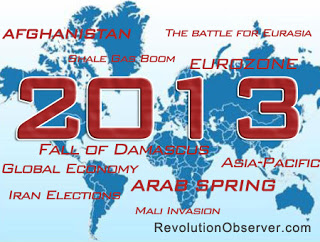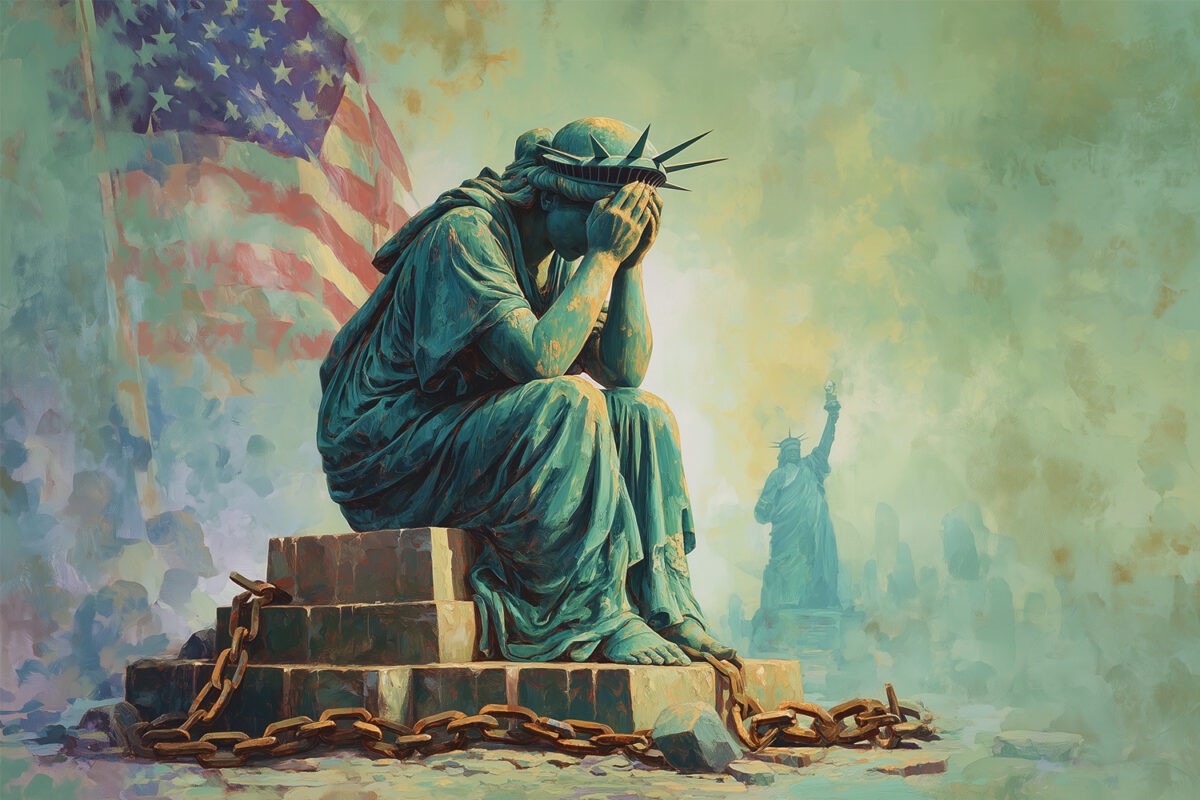By Abu Anas and Adnan Khan
- Syrian Revolution: After two years, the bloodiest uprising within the Arab Spring has claimed over 60,000 recorded deaths as per the latest UN report.[1] The US and the international community have been colluding in silence with the Syrian regime, trying hard, but thus far to no avail, to establish an opposition umbrella that controls the rebels on the ground. There are 4 possible outcomes to this conflict, the worst being a full-scale civil war between the rebel factions after the Assad regime falls.
- Arab Spring 2.0: There are a number of countries that weathered the first wave of the Arab Spring uprisings such as Saudi Arabia, Jordan, Algeria, Morocco and Iraq. However, it remains to be seen if they will survive the second. In Jordan the masses are now calling for the removal of the king as they can see through King Abdullah’s strategy of playing different factions against each other. In Saudi Arabia demonstrations have continued despite the monarchy’s attempt to bribe the population with some reforms and handouts.
- Iranian Elections: Iranians will go to the polls in June 2013 to elect new leadership. Iran is one of the strongest powers in the Middle East and the last election in 2009 showed there were tensions within the ruling elite.[2] The struggle between rival conservative factions and various centers of power in Tehran has now begun to undermine Tehran’s ability to conduct foreign policy. This struggle will determine the future direction of the regime, its influence within the region and its relations with the US.
- Afghanistan: After a decade of war and with considerable cost and fatalities, the US has failed in defeating the Taliban and subsequently stabilizing the country. With the global economic recession, US and NATO troop drawdown and the Karzai government lacking any influence beyond Kabul, the US has been trying to find a negotiated solution with the Taliban. The problem the US is facing is that the Taliban do not need to negotiate as they are in a winning position; this may well prolong the war.[3]
- Mali Invasion: The coup that took place in Mali, Africa, in March 2012 was carried out by junior officers against their senior officers. As a result, the security in the country fell apart and the whole North of Mali was lost to the Tuaregs. France continued to occupied Mali until 1960 and still considers the country as part of its sphere of influence. Fearing its loss, the French have been attempting to construct a coalition force to intervene in the country in order to win it back from apparent extremists.[4]
- Eurozone: Since the sovereign debt crisis began, the EU created various tools to contain the crisis which has now engulfed the whole region. The various solutions that have been proposed have all been temporary measures to contain the crisis and ensure the survival of the union. Many EU summits have taken place to deepen integration and alleviate the crisis. However, growing divergence between key nations France and Germany and with member states has only exacerbated the crisis.[5]
- Global Economy: 2013 will be the sixth year of the global economic crisis. All the solutions from stimulus spending, austerity measures, quantitative easing (QE), bailouts and nationalizations have failed and many of the world’s premier economies have gone into double-dip recessions. All of that plus the rising energy prices have led to a constant increase in food prices that continue to cause millions around the world to go under the line of poverty.[6]
- US Shale Gas Industry: The 2012 annual energy review by the world’s foremost energy watchdog, the International Energy Agency (IEA), outlined that the US would benefit from so-called unconventional sources of oil and gas, including shale gas and shale oil, derived from fracking – blasting dense rocks apart to release the fossil fuels trapped within. The IEA believed that such source could fuel US energy independence, and make the country the world’s largest gas producer by 2017.[7] If these predictions are true, they could provide even greater leverage to US over oil and gas markets and prices!
- Resurgence of Russia: The last decade has seen Russia go through political and economic resurgence, securing its periphery – the former Soviet Republics – and utilizing the high oil and gas world prices to its advantage. As the US was busy in its two wars in the Middle East, Russia was able to reverse much of America’s influence and the color revolutions that had effectively rolled back Russian influence in its region. The Ballistic Missile Defense shield is America’s attempt to neutralize Russia’s large inventory of Soviet era missiles and thus contain Russian expansion.[8]
- US Presence in Asia-Pacific Region: After a decade of preoccupation in the Middle East, US Secretary of Defense Leon Panetta, outlined America’s pivot to the Asia-Pacific, saying that the “transfer of the US fleet comes in the context of the implementation of a new US strategy designed to raise the level of US military presence in the Asia-Pacific.”[9] This US presence will increase friction with China who has been trying to expand its influence within the South and East China seas and the region in general.
[1] http://www.reuters.com/article/2013/01/02/us-syria-crisis-idUSBRE8AJ1FK20130102
[2] http://eurasia.foreignpolicy.com/posts/2010/09/09/inside_the_iranian_elites_power_struggle_by_ian_bremmer
[3] http://www.nytimes.com/2012/10/05/opinion/peace-talks-with-the-taliban.html
[4] http://www.nytimes.com/2012/12/21/world/africa/un-panel-votes-to-help-malis-army-oust-extremists.html
[5] http://www.guardian.co.uk/business/2012/dec/31/eurozone-crisis-angela-merkel-2013-predictions
[6] http://science.time.com/2012/12/17/betting-on-hunger-is-financial-speculation-to-blame-for-high-food-prices/
[7] Fiona Harvey, US can become world’s biggest oil producer in a decade, says IEA, Guardian, 12 November 2012, retrieved 23 November 2012, http://www.guardian.co.uk/environment/2012/nov/12/us-biggest-oil-producer
[8] http://www.bbc.co.uk/news/world-europe-17937795
[9] Leon Panetta, Secretary of Defense, United States, ‘The US Rebalance Towards the Asia-Pacific,’ The 11th IISS Asia Security Summit, The Shangri-La Dialogue, Singapore, Saturday 02 June 2012, First Plenary Session, retrieved 23 September 2012, http://www.iiss.org/conferences/the-shangri-la-dialogue/shangri-la-dialogue-2012/speeches/first-plenary-session/leon-panetta/





